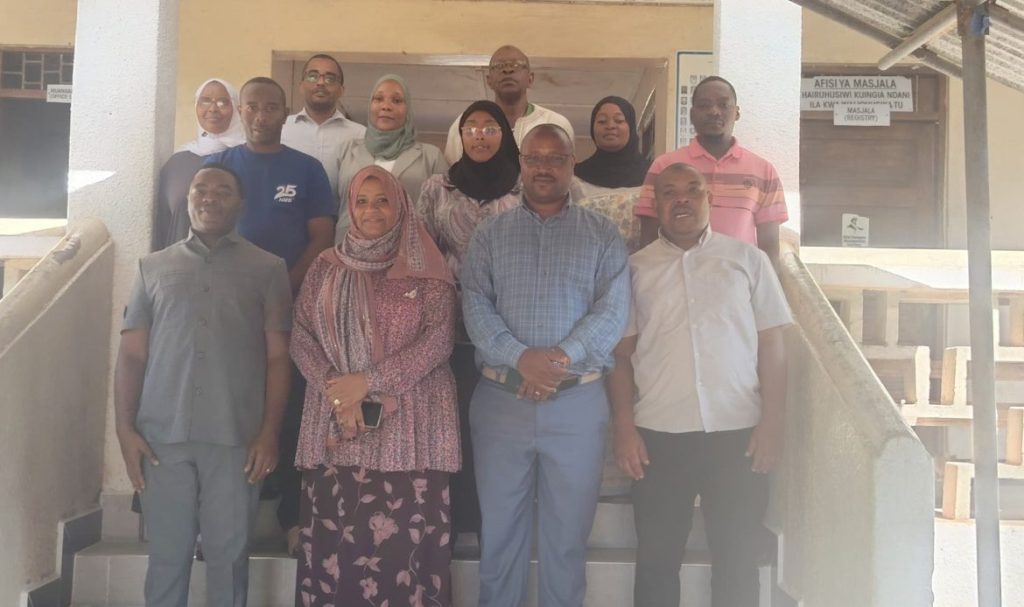Kilimokwanza.org Team
Zanzibar Launches Multi-Stakeholder Platform for Sustainable Landscape Management
How can we restore degraded landscapes while empowering local communities? Zanzibar is answering this critical question by establishing a Multi-Stakeholder Platform (MSP), an initiative to coordinate development projects in Unguja North A and Unguja North B landscapes.
The natural beauty of Zanzibar faces severe threats due to socio-economic activities that have led to landscape degradation, endangering biodiversity and jeopardizing livelihoods. Recognizing the urgency of collaborative action, the Revolutionary Government of Zanzibar, through the Ministry of Agriculture, Irrigation, and Natural Resources, has partnered with the Southern Agricultural Growth Corridor of Tanzania (SAGCOT) Centre and the Kilombero District from mainland Tanzania to establish this groundbreaking platform.
This initiative draws inspiration from the success of the Kilombero MSP, which has been operational since 2017. Established by the Morogoro Regional Government in collaboration with SAGCOT partners—including the African Wildlife Foundation (AWF), International Union for Conservation of Nature (IUCN), World Wildlife Fund (WWF), private sector companies, and the National Land Use Planning Commission—the Kilombero MSP has effectively aligned resources and efforts to conserve natural resources, deliver long-lasting ecosystem services, and foster economic opportunities for local communities.
As John Banga, Acting Head of Cluster Development at the SAGCOT Centre, noted, “The Kilombero Forum has facilitated effective coordination of agriculture and conservation projects, enhancing stakeholder operations, particularly within the government, and preventing duplication of efforts.” This model serves as a blueprint for Zanzibar’s efforts to achieve similar successes in restoring its own landscapes.
The Zanzibar Landscape MSP initiative is being developed under the Food Systems, Land Use and Restoration (FOLUR) project, funded by the Global Environment Facility (GEF) and implemented by the Ministry of Natural Resources and Tourism, with support from WWF Tanzania. The FOLUR initiative aims to transform global food systems by promoting sustainable land use practices, optimizing commodity value chains, and conserving biodiversity across agricultural landscapes. It focuses on key commodities such as coffee, cocoa, palm oil, and rice, addressing issues like deforestation and land degradation through country-specific projects.
To enhance collaboration and streamline agricultural and conservation efforts, stakeholders in Zanzibar convened on February 13th and 14th, 2025, to explore the establishment of an Inclusive Agriculture and Conservation Stakeholders’ Platform. This initiative is spearheaded by the Ministry of Agriculture, Irrigation, and Natural Resources of Zanzibar, with support from the Kilombero District Council, which chairs a similar forum in Kilombero. During these discussions, participants drew lessons from the Kilombero Forum, a successful model initiated by SAGCOT in collaboration with AWF in 2017.
Miza Suleiman Khamis, Chief Forest Officer, Ministry of Agriculture, Irrigation, Natural Resources, and Livestock, Department of Forestry, Zanzibar, and Josepha Mgana, Forestry Officer from Kilombero District, Morogoro, participated in the meeting. Both emphasized the importance of this initiative, as by bringing together diverse stakeholders, we ensure our efforts are coordinated and impactful.
In partnership with the Kilombero District Council, the SAGCOT Centre continues to engage with the Ministry of Agriculture, Irrigation, and Natural Resources of Zanzibar to establish this inclusive platform. As John Banga reiterated, “This team has drawn valuable lessons from the Kilombero Forum, which has proven instrumental in aligning agriculture and conservation initiatives and minimizing overlap among stakeholders.”
As Zanzibar embarks on this transformative journey, the MSP offers hope for a brighter, more sustainable future—one where thriving ecosystems coexist harmoniously with prosperous communities, paving the way for long-term resilience and prosperity.

